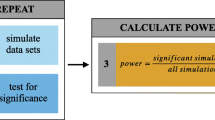Abstract
This paper reviews the major issues posed by scenario-based simulation modeling in the policy process, using agricultural policy as an example of a complex decision arena. Policy is seen as a process by which decision makers use the instruments under their control to approach the general goals of society. Models can help to choose instrument settings, evaluate policy options, and assess their appropriateness to a particular situation. But they cannot design policy; the interactions between policy makers and models are critical if modeling is to be useful in the policy process. Policy models must be oriented to the factors that focus and constrain judgments in the real world, as well as toward the substantive problems motivating analyses. These include the actors within the system, as well as the geographic and disciplinary contexts of the problems. Scenario-writing provides a way of ordering understanding and judgment about different phenomena to help users interact most effectively with a model and to insure that the perspectives of the model are most appropriate to the needs of the decisionmaker. It is an iterative and evolutionary process which can provide a great deal of insight into the assessment phase of policy design.
Similar content being viewed by others
References
Arnaszus, H. (1974). Spieltheorie und Nutzenbegriff aus marxistischer Sicht. Frankfurt am Main: Suhrkamp-Verlag, KG.
Biswas, A. K. (1975). “Mathematical Modelling and Environmental Decision-making,” Ecological Modelling, 1: 31–48.
Biswas, A. K. (1976). Systems Approach to Water Management. New York: McGraw-Hill.
Bossel, H., ed. (1977). Concepts and Tools of Computer-Assisted Policy Analysis, 3 vols. Basel: Birkhaeuser Verlag.
Carr, A. B. (1976). “Use of Scenario Writing in Assessing Technology,” Jour. Int. Soc. Tech. Assessment. (Fall): 27–30.
Clapham, W. B. Jr. (1977). National/Regional Agriculture Production Model, 4 vols. Cleveland: Case Western Reserve University SRC Report 77-1.
Committee on Water Resources Planning, Water Resources and Management Div. (1976). “Forecasts and the Role of Alternative Futures,” Journal of Water Research Planning Management Div., Proc. Am. Soc. Civil. Eng., 102 (WR2): 365–383.
Dillon, J. L. (1976). “The Economics of Systems Research,” Agriculture Systems, 1: 5–22.
Dinkel, J. J. and Erickson, J. E. (1978). “Multiple Objectives in Environmental Protection Programs,” Policy Sciences, 9: 87–96.
Donald, A. (1976). “On the Stating of Goals,” Journal of Systems Engineering, 4: 89–95.
Goeller, B. F. et al. (1977). Protecting an Estuary from Floods—A Policy Analysis of the Oosterschelde, Vol. 1: Summary. RAND Corp. Publ. R-2121/1-Neth.
Haimes, Y. Y., Hall, W. A., and Freedman, H. T. (1975). Multiobjective Optimization in Water Resources Systems. Amsterdam: Elsevier Scientific Publishing Company.
Heady, E. O., 1978. Personal communication regarding extensions and uses of Stoecker et al., 1978.
Jenkins, W. I. (1978). Policy Analysis: A Political and Organizational Perspective. London: Martin Robertson.
Kahales, H. (1977). “Long-Range Planning—An Open Systems Review,” Long Range Planning, 10: 78–82.
Kantor, P. and Nelson, R. J. (1979). “Social Decision Making in the Presence of Complex Goals, Ethics, and the Environment,” Theory and Decision, 10: 181–200.
Knauer, P. (1978). “Zur Aussagefaehigkeit und Anwendbarkeit der Szenario-Methode,” Analysen und Prognosen, 55: 13–15.
Kopelman, J. B. and Weaver, N. L. (1978). “Energy Modeling as a Tool for Planning,” Long Range Planning, 11: 25–33.
Majone, G. (1976). “Choice Among Policy Instruments for Pollution Control,” Policy Analysis, 2 589–613.
Martino, J. P. and Lenz, R. C. Jr. (1977). “Barriers to Use of Policy-Relevant Information by Decision-Makers,” Technical Forecasting and Social Change, 10: 381–390.
Mendell, J. S. and Tanner, W. L. (1975). “In Technology Assessment, Process is More Important than Product: or Throw Out the Assessment and Keep the Assessor,” Jour. Int. Soc. Tech. Assessment (Sept.): 22-29.
Mesarovic, M. D., Macko, D., and Takahara, Y. (1970). Theory of Hierarchical Multilevel Systems. New York:
Mesarovic, M. D., Pestel, E., et al. (1974). Multilevel Computer Model of World Development System, 6 vols. Special Publication SP-74–04. Laxenburg, Austria: International Institute for Applied Systems Analysis.
Quade, E. S. (1971). “The Systems Approach and Public Policy,” Journal of Systems Engineering, 2(1): 23–34.
Quade, E. S. (1975). Analysis for Public Decisions. New York: American Elsevier.
Rapoport, A. (1979). Mathematische Modelle in den Sozialwissenschaften. Wuerzburg/Wien: Physica Verlag.
Royston, M. G. and Perkowski, J. C. (1975). “Determination of the Priority of ‘Actors’ in the Framework of Environmental Management,” Environmental Conservation, 2: 137–144.
Schultze, C. L. (1968). The Politics and Economics of Public Spending. Washington, D.C.: Brookings Institute.
Spofford, W. O., Russell, C. S., and Kelly, R. A. (1976). Environmental Quality Management: An Application to the Delaware Valley. Washington, D.C.: Resources for the Future.
Stoecker, A. L., Nicol, K. J., and Sriplung, S. (1978). “Structure of a Recursive Model for Policy Analysis in Thailand.” Ames, Iowa: DAE-CARD Sector Analysis Series, No. 11.
Vanston, J. H., Jr., Frisbie, W. P., Lopreato, S. C., and Poston, D. L. Jr. (1977). “Alternative Scenario Planning,” Technical Forecasting and Social Change, 10: 159–180.
Wall, G. (1976). “National Coping Styles: Policies to Combat Environmental Problems,” International Journal of Environmental Studies, 9: 239–245.
Watters, R. F. (1971). “Shifting Cultivation in Latin America,” FAO Forestry Development Paper 17.
Author information
Authors and Affiliations
Rights and permissions
About this article
Cite this article
Clapham, W.B., Pestel, R.F. & Arnaszus, H. On the scenario approach to simulation modeling for complex policy assessment and design. Policy Sci 11, 157–177 (1979). https://doi.org/10.1007/BF00139827
Issue Date:
DOI: https://doi.org/10.1007/BF00139827




